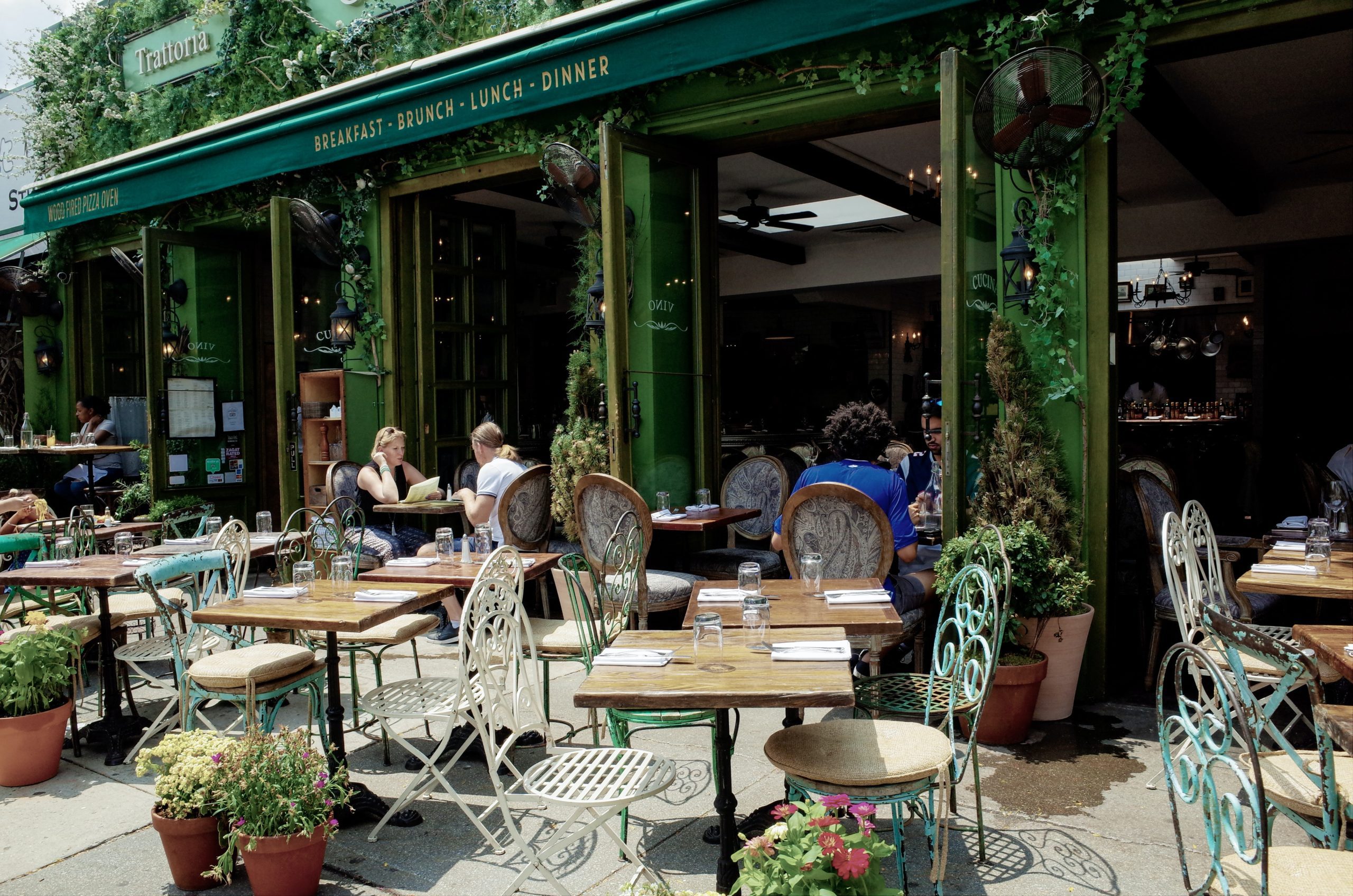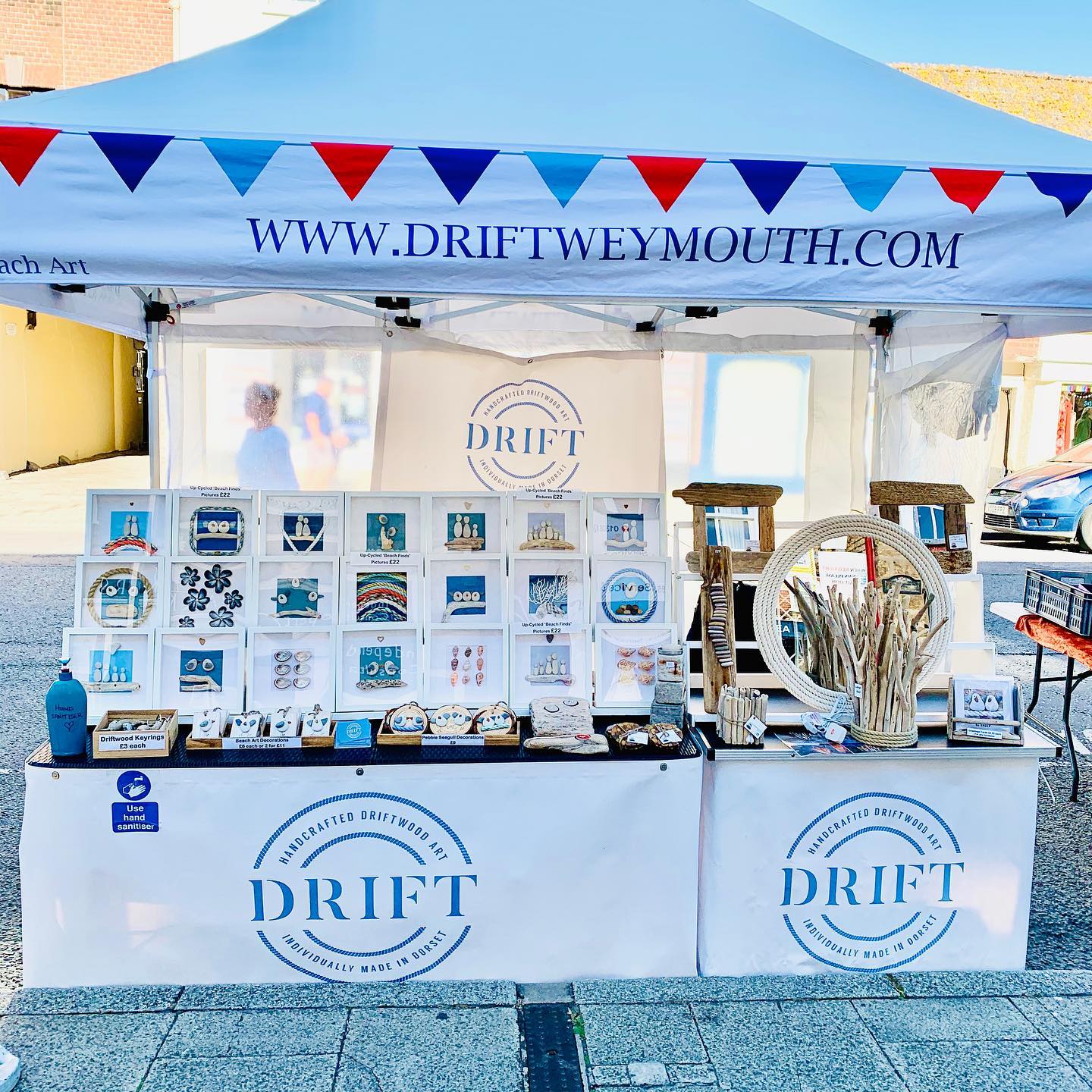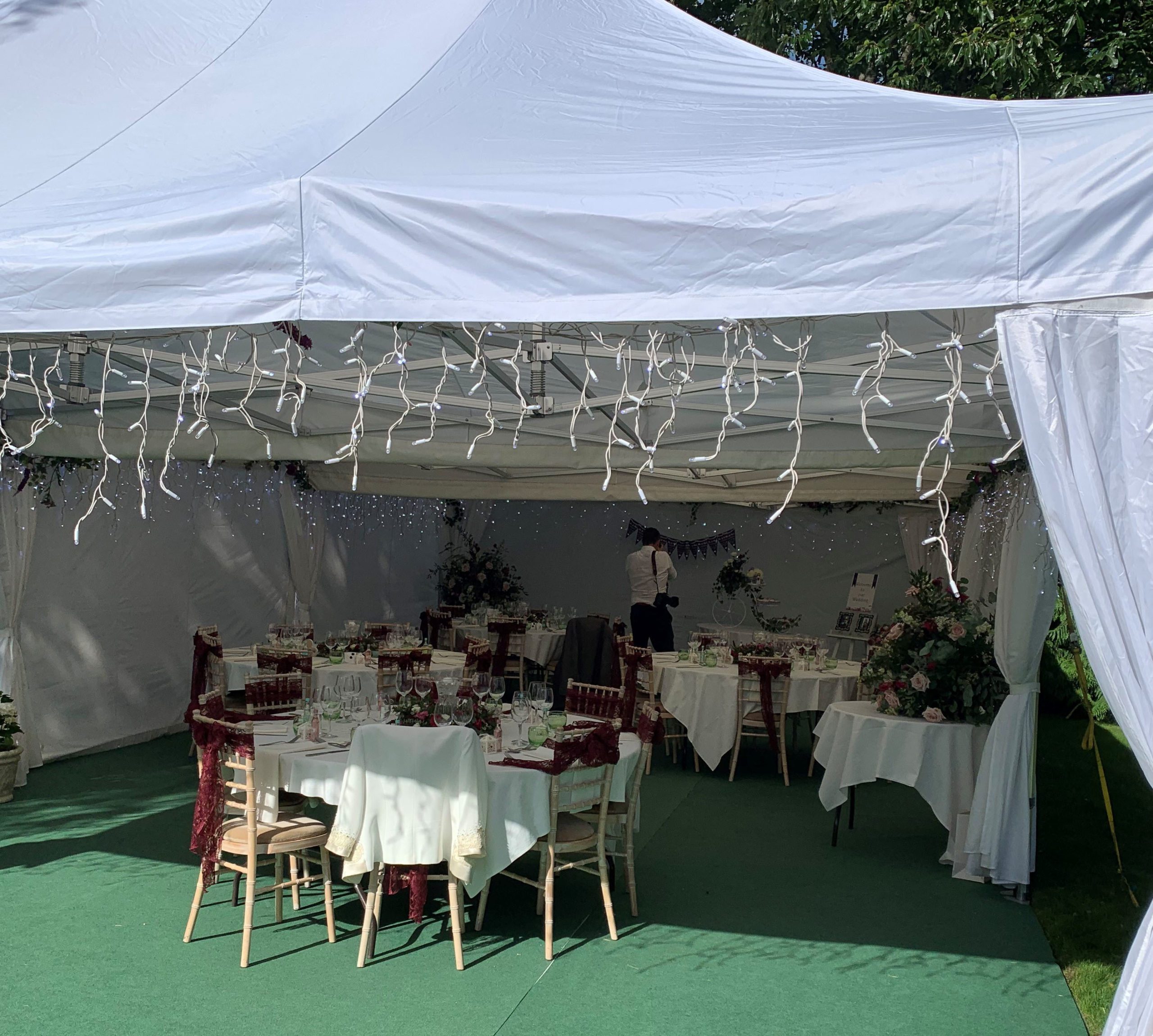Grow your business from ‘home to high street’
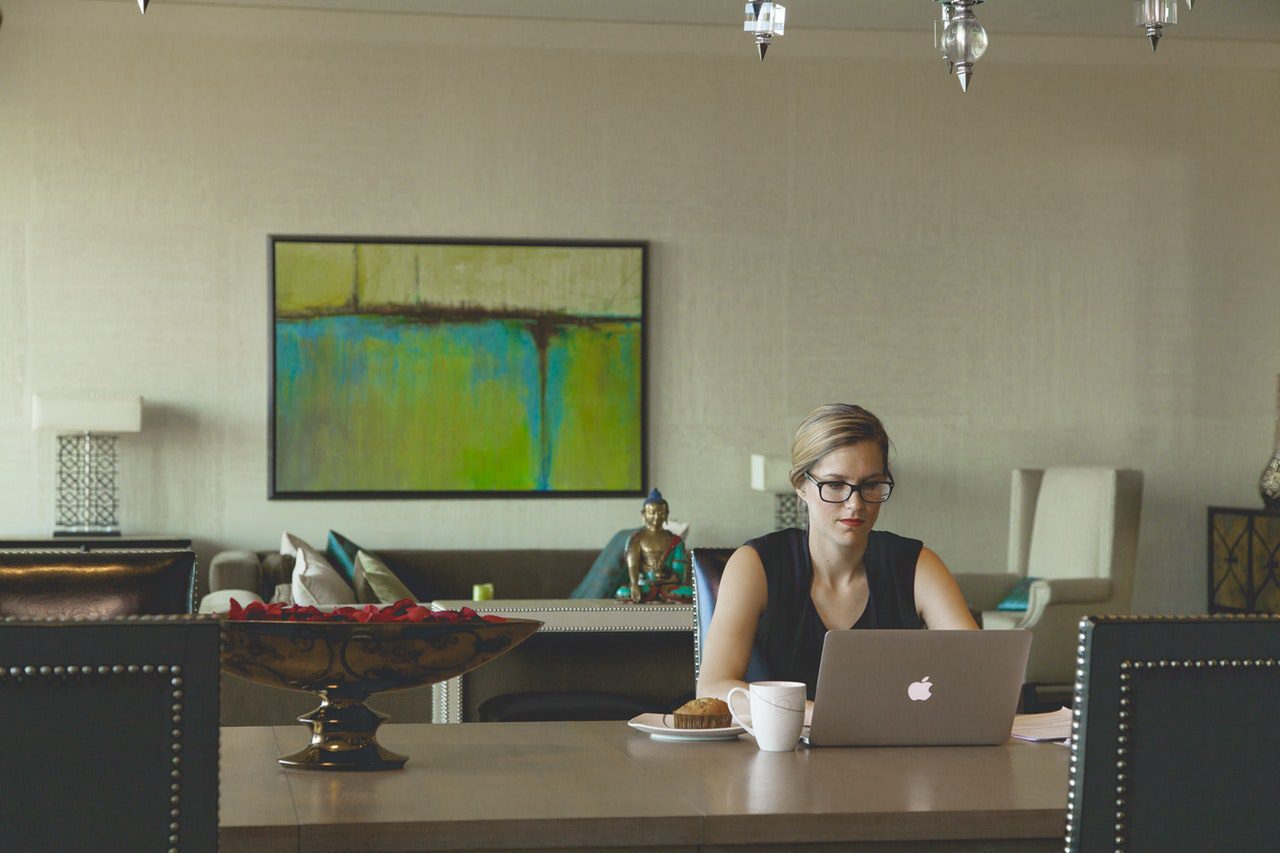
Technology has given us greater flexibility over when, where and how we work, and has aided a rise in the number of people setting up their own business from home.
Getting your brand ‘out there’ can seem like a daunting prospect when you spend much of your day-to-day working life in your garage, bedroom or home office, but there are so many benefits to attending events and trade shows, or setting up your own pop-up shop.
Not only does it expose your brand to hundreds, or thousands of people in a short period of time, but it’s a great way to honest feedback from customers and potential customers. And there’s always the opportunity to network with other like-minded business owners, and scout out the competition!
If you run a home business, or would like to, then this article is for you. We’ve spoken to 5 inspirational entrepreneurs to find out what they enjoy about working from home, how they’ve gone from ‘home to high street’, and how they’re planning to grow their brand over the next few years.
Natalie Lovett, director of The Whitewed Directory
 Tell us about your business and when it was founded
Tell us about your business and when it was founded
The Whitewed Directory was started in 2014 as an addition to my professional wedding and event planning business, Love to Plan Ltd. Love to Plan offers a high-quality event planning and management service to 10-12 clients a year.
Whitewed developed from a want and need to provide a professional platform for the wedding industry, for both wedding suppliers and engaged couples alike. A want to create a community where wedding suppliers can grow, share and move forward, and a need to develop a brand to cover our growing wedding show organisation services.
The Whitewed Directory offers a high-quality shop window, membership benefits and business support to local wedding businesses that want to grow, and in turn the directory offers local engaged couples a beautifully designed, visual planning aid which continually develops to remain enticing and in tune with market changes.
Why did you decide to start your business from home? What are the advantages and disadvantages of this?
In the early days, it was a matter of cost and convenience…and also a novelty. I was lucky to have a study at home that worked beautifully for the first few years, my home is also in a good location in terms of my client-base, so visits were quick and easy too.
The advantages were that there are no commutes, no office rent to pay and the convenience of having your life in one place.
The disadvantages were that I became tired of being at home and found that spending all day every day in the same four walls had a negative impact on me, it affected my productivity and led to a lot of procrastination – it was time to get an office!
How were the early days of your business? What was your biggest challenge?
Exciting and challenging! Having never run a business, everything was a learning curve, but I soon became a master of all trades, however the biggest challenge is, and also has been, the ability to delegate and work on the business rather than in it, but this constantly improves as the business and my team grows.
What have you done to raise awareness of your brand outside of the home?
PR has played a very important part in the development and awareness of the brand, as have high-quality organised events, networking get togethers and hefty time spent on social media and the development and launch of a great website.
How has your business grown since you started it?
When Love to Plan started in 2007, I organised and managed 2 weddings in the same year, one of which was for no fee, the other a very small fee. This has grown to the development and launch of a sister company, 5 freelance team members, personal standing in the industry and over 120 weddings, over 100 weddings shows under our belt and 165 wedding suppliers with us on our directory.
What do you envisage for your brand over the next 12-24 months?
To increase our Whitewed Directory approved members to 300 by this time next year, and 450 within 24 months, and increase our wedding shows from 25 per year to 40.
We also want to expand across the South of England and develop the brand further to be a recognised ‘go to’ for wedding suppliers and engaged couples alike.
What advice would you give to other entrepreneurs looking to grow their home business?
Always build in an office rent cost into your P&L to ensure it’s affordable.Push yourself to continually develop your offering / service and ‘get out there’ in front of the right people constantly! Know that business doesn’t land at your feet, it can take many years to gain the reputation you deserve, and once you’ve earned it, don’t take a step back – up your game even more!
Laura Slater, co-founder of Bubblegum Balloons
 Tell us about your business and when it was founded
Tell us about your business and when it was founded
I founded the business in 2013 with my sister, Sally Clackett, and our friend Megan Robertson; we initially worked from the family home. Having just celebrated our 5th birthday, Bubblegum Balloons is a full-time balloon machine delivering happiness and making parties come to life.
Why did you decide to start your business from home? What are the advantages and disadvantages of this?
Like any new business it was about saving money – we had some space at home and so it began. Eventually we were busy enough and the demand was big enough for us to afford our own premises. We didn’t borrow lots of money to start the business, we ploughed back in what we earned and within a year we were in our first office space wondering how we would ever fill it! Note to self – you always do and it always way quicker than you imagine!
When starting your own business, you’re on 24/7 regardless, so having the studio/office at home made it easier to fire on all cylinders from the offset. The downside was we often had to manoeuvre around the boxes in the lounge / hallway that were heading out for that day.
How were the early days of your business? What was your biggest challenge?
It was crazy, it just took off (excuse the pun) so quickly. Within a few months of our launch date we were surrounded by 50 boxes containing balloons for Givenchy to launch their new perfume, wondering how we had got there! It literally felt like a whirlwind. We put it down to perfect timing, a great product and a lot of blood, sweat and the occasional tear. Our biggest challenge has always been time, with young families and work it is hard to manage but even now we have weeks when it works and weeks when it doesn’t.
What have you done to raise awareness of your brand outside of the home?
PR has always been a big focus for the brand and as a result has helped the business grow at the speed it has. From trade shows, press events and endlessly harassing journalists, it’s paid off. Social media has always been our friend too.
How has your business grown since you started it?
Now a team of 26 permanent staff, Bubblegum Balloons has an e-Commerce, event installations, wholesale and retail offering. There’s no part of the market we don’t have our sights set on.
What do you envisage for your brand over the next 12-24 months?
The retail side of the business has grown considerable amounts over the past 12 months and it’s only set to get bigger and better. Expect to see Bubblegum Balloon’s products in all of your favourite stores soon!
What advice would you give to other entrepreneurs looking to grow their home business?
Never forget why you first started the business and do everything you can to never lose the passion. Don’t get distracted by what everyone else is doing and take the time to appreciate how far you’ve come.
Jules Quill, founder of Popaball
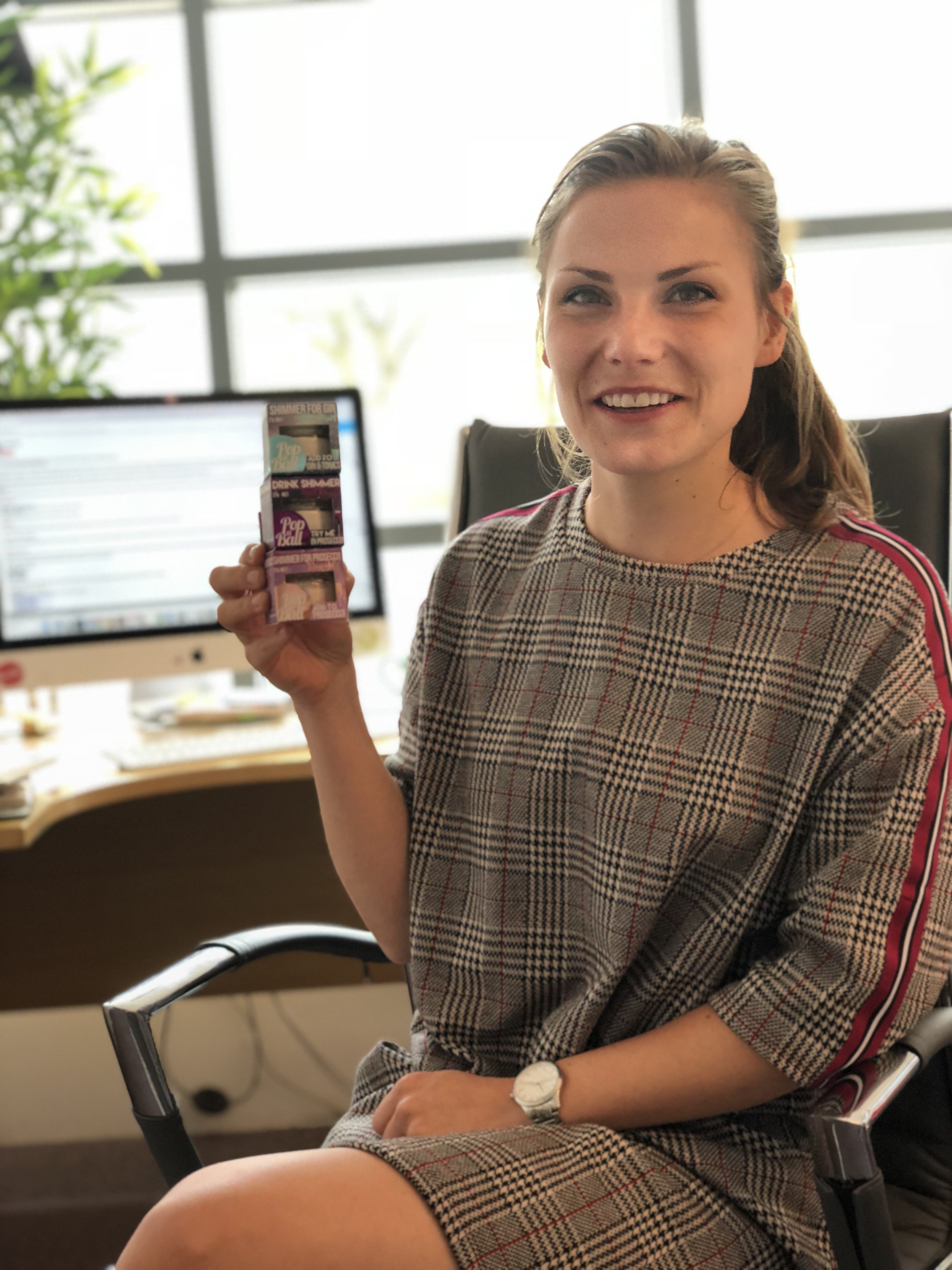 Tell us about your business and when it was founded
Tell us about your business and when it was founded
It all started in 2011, with the launch of my first business, The Teashed. I was just graduating from Northumbria university and I came up with the idea of a tea gifting service for my final module and decided to turn my project into a legitimate business. The Teashed is still in operation today, selling high-quality, whole leaf teabags, presented in lovely gift boxes.
In 2015, I went on to launch Popaball, which has grown to become our main business. Popaball is a ‘pimp your drinks’ company, with an entirely unique product offering, including shimmer for Prosecco, and a selection of one-off gin gifts for him and her. I have been self-employed since graduating uni, and these businesses have been my full-time job from the initial launch, 7 years ago.
Why did you decide to start your business from home? What are the advantages and disadvantages of this?
Starting my business from home was less of a decision and more of a necessity. I simply didn’t have the finances available, nor could I justify the need to have an office space in the early days.
In the beginning, working from home was great. I was by myself, working on new products most of the time and I found it nicer to be working from home alone as opposed to a lonely, small office.
Some start-up businesses may be concerned about meeting space, but this shouldn’t be an issue. I used to host meetings at local cafés, or at other people’s offices, which gave me increased flexibility – there certainly wasn’t any need to host business meetings in my home!
Ultimately, I personally found I was very productive and hard-working at home, I could roll out of bed in the morning and crack on from the early hours, ‘til any time in the day, without feeling restricted by traditional working hours.
A real struggle I faced was the realisation that I was running a ’real business’. It can be difficult to get in the right mind-set, especially when your HQ is your bedroom at your family home. Also, as we lived in the countryside, I often felt cut-off from the hub of the city, sometimes chatting to like-minded people is essential to get you off on the right foot, and my starting location left me secluded from that atmosphere.
Operations wise, the limited amount of space at my parents’ house was a huge disadvantage. Boxes upon boxes filled with stock took over every room in the house and when articulated lorries would try to come down my driveway, they usually got stuck – not ideal when deliveries and shipments are a key part of your business!
How were the early days of your business? What was your biggest challenge?
I think any business owner would tell you that the early days are the hardest. Running your own business can be lonely and isolating. You invest everything into your company, so there’s no time, or money to go out with your friends. You can’t join in with conversations about career progression, office banter, and working relationships, because you don’t have the experience. It’s also difficult to communicate your business concepts, especially when you’re still trying to secure your niche in the market.
Ultimately, the biggest challenges I faced were managing finances and getting the brand out there with limited resources.
What have you done to raise awareness of your brand outside of the home?
At the start, I attended as many trade shows, markets, events and pop-ups as possible. I found this was a great way to raise brand awareness and to get feedback on my products.
Now, our marketing activity is mainly concentrated online, so we can identify and target our exact demographic. Social media is key to connecting with influencers, who can promote our products to their followers. As our products are so visual, we find Instagram is the best platform for our business, though, we are also active on Facebook and Twitter.
How has your business grown since you started it?
It started 7 years ago in my bedroom, with just myself and some help from my mum. Now we have a core team of 18, expanding to 60 at Christmas. We have moved three times, to accommodate the growing team, and will need to take on bigger premises again within the next year.
What do you envisage for your brand over the next 12-24 months?
We plan to further develop and refine our unique product offering at Popaball, and expect to see significant growth.
What advice would you give to other entrepreneurs looking to grow their home business?
Start small. Everyone starts with big dreams, which are not always given a long enough time frame to progress. If you set yourself small milestones, you will be more likely to achieve them and feel good about your progress. Starting small also means with your spending. Little and often is better than tying up your cash because the price overall is better, or you’ve been told there is no other way. There is always another way. If someone says the minimum order is in the thousands, keep looking. If someone says the minimum rental term is years, keep looking. As a start-up company, you are not in a position to invest in long-term decisions when your products and strategies will change.
Vivien Wong, co-founder of Little Moons
 Tell us about your business and when it was founded
Tell us about your business and when it was founded
Our parents have been making traditional mochi for 30 years; my brother Howard and I were fortunate to be able to grow a business off the back of their bakery. We worked from my kitchen at first and started small, only supplying ice cream mochi to restaurants. Once our business was self-financing, we spent our money on branding to get into retailers.
Why did you decide to start your business from home? What are the advantages and disadvantages of this?
At the time it was best not to think about everything at once. I took challenges step by step and sought advice and support from friends and family. It was great to have my brother as my business partner to bounce ideas off and share the workload. He has been the biggest help.
How were the early days of your business? What was your biggest challenge?
My biggest worry was investing in a cutting-edge factory, which was a huge gamble. We had found initial success supplying a large number of restaurants, but took a leap of faith that more customers would like what we do. Luckily the timing was right as sushi and Japanese cuisine was taking off and people became more adventurous with food. Cash flow was tight when we invested. It genuinely kept me up at night.
What have you done to raise awareness of your brand outside of the home?
We invest time and thought into events and pop-ups. We had a very successful pop-up in Old Street station, which featured on Time Out and lead to our mochi appearing on Channel 4’s Sunday Brunch!
How has your business grown since you started it?
Seeing our product on the shelf for the first time was exhilarating and hearing about more and more people discovering and enjoying our products is really rewarding. We now have a factory and office in North London, with a team of about 10.
Maxine Brown, Managing Director of MB Recycling Ltd
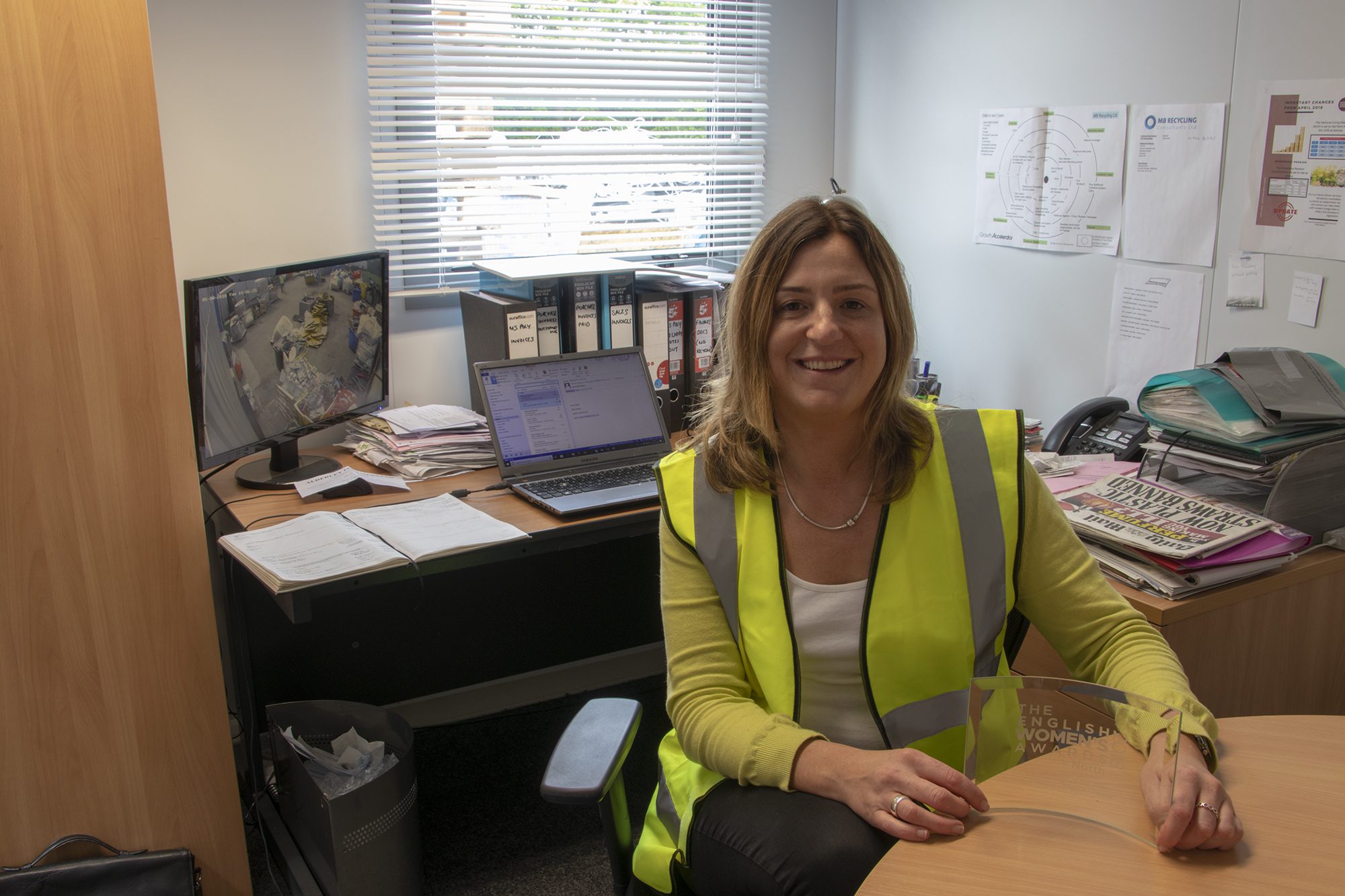 Tell us about your business and when it was founded
Tell us about your business and when it was founded
MB Recycling Ltd is a plastic recycling business, founded in 2013. My 6,500 sq ft plant in Rochdale, Manchester, has the capacity to recycle 300 tonnes per month and 4,000 tonnes annually. It is my full-time business.
Why did you decide to start your business from home? What are the advantages and disadvantages of this?
I launched the business from my spare room five years ago. In the early days of the business, I quickly discovered the same message was going around – either send the waste to landfill or export to China. Both of these options seemed to go against the grain, environmentally. I’d always thought about setting up a recycling plant to encourage firms to keep everything in the UK instead of exporting, which has the added bonus of reducing our carbon footprint. I started off as waste plastic broker, helping companies find alternative avenues for their waste streams in order to avoid sending to landfill – I was able to do this based from home, using a laptop, mobile phone and a car. Advantages of working from home are the low overheads and flexible working. The disadvantages are that meeting places often had to be in coffee shops or hotel foyers.
How were the early days of your business? What was your biggest challenge?
The early days were very daunting as I had bills to pay, so it was the stress of making sure I had enough income coming in. Breaking into a male-dominated industry was also one of the biggest challenges. When people find out what I do and what industry I’m in, I do get a surprised reaction sometimes as it is a typically male-dominated industry, but it’s definitely a good talking point
What have you done to raise awareness of your brand outside of the home?
I have attended a lot of business networking events to promote my brand and service – this has helped to grow my business.
How has your business grown since you started it?
I started in 2013 working from my spare bedroom and now I have set up a 6,500 sq ft recycling plant with seven staff and a turnover of £600,000K per annum.
What do you envisage for your brand over the next 12-24 months?
I am looking to expand into recycling other materials, such as cardboard and paper. I plan to invest in bigger equipment so we can recycle more and I will take on more staff as the business expands.
What advice would you give to other entrepreneurs looking to grow their home business?
The advice that I would give them is to believe in yourself and your brand. Get out and shout about what you are doing and how your services/product can benefit your audience, and to never give up.
Gazeboshop works with a range of small and large businesses to help them increase their presence and visibility at a variety of events and trade shows. Check out the sector gallery to see some of the businesses that we have worked with. Are you looking to grow your business at events? Browse our range of gazebos or contact us today to find out how we can help you.


